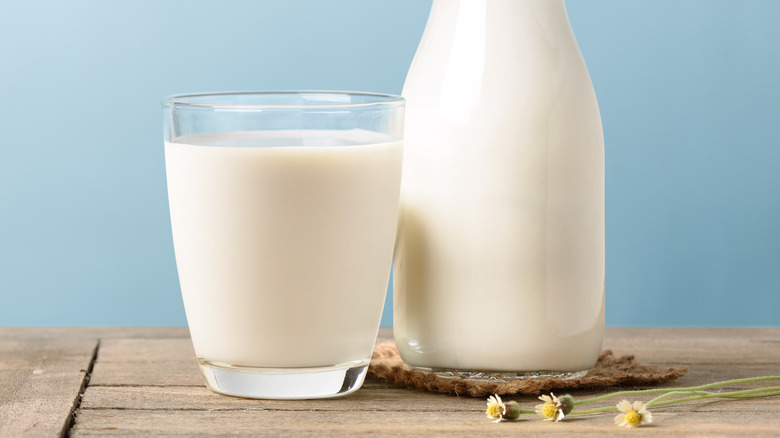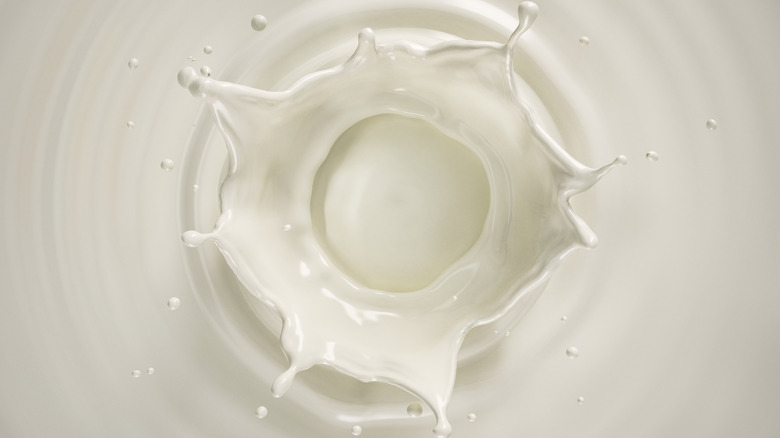Why Milk Is About To Get Even More Expensive
Milk is a diet staple for many who prefer using it in their oatmeal, with a steaming cup of coffee, with protein shakes, and more. Unfortunately, it's not always an affordable pick for many. According to TIME, the average price of milk is currently estimated to be $3.59 for a gallon which is 26% higher than the prices that were prevalent in July 2018. Over the previous year, milk has seen a 4% increase. Think about this, though: Meat is actually more expensive and prices of boneless chuck roast have gone up by 28% in the last year.
Although it has seen less of an upswing than meat, milk prices have definitely been increasing for a few years and it seems like things will get even more expensive in the future. Experts are looking at several reasons for the surge in prices and one of the primary reasons is that the total number of dairy cows has reduced in the country which has slowed down milk production.
Things aren't looking great for milk
According to TIME, the total number of dairy cows has reduced drastically compared to the last decade. This issue isn't limited to the US, either. Several countries are currently struggling with milk production, such as New Zealand, Australia and countries in the European Union. Even in Canada, it's believed that milk will become a costlier grocery staple over the next year. A government organization called The Canadian Dairy Commission intends to increase the prices that it pays to local farmers from February, which will in turn lead to an increase in the prices of milk and help tackle related costs, including fertilizer expenses and feeding costs.
Additionally, the logistical challenges associated with the pandemic have made things worse for many and essential commodities have become more expensive in general. Another important point: Per USA Today, cows have been supplying less milk on account of climate change and increased temperatures. Stephen Devadoss, a professor from Texas Tech University, said that this will be especially tough for smaller farms as they try to stay afloat. He said, "For them to survive, they need to see higher prices for milk. If the price does not go up as much as the cost of production, then many farmers are going to go out of business."

